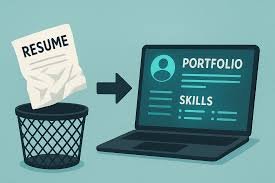
Is Your Job AI-Proof? Focusing on Skills That Robots Can't Master
Is Your Job AI-Proof? Focusing on Skills That Robots Can't Master
The conversation around artificial intelligence has shifted dramatically. It’s no longer a distant sci-fi fantasy; it’s the co-worker sitting beside you, rapidly automating tasks once thought to be exclusively human. From writing code to drafting legal briefs and creating marketing copy, AI tools are proving their mastery over repetitive, data-driven, and logical functions.
This technological seismic shift has sparked legitimate anxiety: Is my job AI-proof?
The answer is not simply "yes" or "no." It's more nuanced: any job relying solely on predictable, pattern-based tasks is vulnerable. However, roles that thrive on ambiguity, emotional intelligence, and complex human interaction are becoming more valuable than ever. To future-proof your career, the focus must move away from the technical skills that robots can master and toward the uniquely human capabilities that they can't.
This blog post will identify the four key human skill categories that AI cannot replicate and offer a blueprint for investing in the only truly safe career hedge: your humanity.
The Four Pillars of AI-Proof Skills
While AI can analyze data with unparalleled speed, it operates without human consciousness, lived experience, or genuine empathy. These limitations create a protective moat around certain skill sets.
1. Complex Communication and Emotional Intelligence
AI can generate persuasive text, but it cannot authentically read a room, navigate a sensitive political disagreement, or mediate a team conflict driven by emotional history.
-
The Skill: Emotional Intelligence (EQ), Empathy, Negotiation, Active Listening, and Stakeholder Management.
-
Why AI Fails: EQ requires self-awareness and the ability to understand and respond to the subtle, non-verbal cues (body language, tone, context) that define human relationships. AI can simulate empathy based on data patterns, but it lacks genuine feeling and the ability to manage complex human emotions under stress.
-
AI-Proof Roles: Therapists, HR Leaders, Executive Coaches, Salespeople (for complex B2B deals), Diplomats, and Senior Managers who handle cross-functional conflicts.
-
How to Invest: Seek out roles that involve high-stakes communication. Practice active listening by summarizing and validating others' points of view before responding. Volunteer for projects that involve mediation or managing difficult client conversations.
2. Creative Ideation and Artistic Synthesis
AI is a brilliant imitator. It can synthesize millions of images, texts, or melodies to generate new content. However, it cannot generate truly novel concepts, pose disruptive new questions, or develop artistic works born from lived experience and unique perspective.
-
The Skill: Original Creativity, Conceptual Design, Question Formulation, and Unconstrained Ideation.
-
Why AI Fails: AI optimizes, but humans innovate. True creativity involves synthesizing disparate concepts in a way that breaks existing patterns, often driven by intuition, randomness, and a subjective desire to communicate something personal. AI is confined by the data it was trained on; it cannot jump beyond its training set.
-
AI-Proof Roles: Visionary Leaders, Research Scientists (posing entirely new hypotheses), Conceptual Artists, Novelists, Strategic Architects, and Product Designers focused on entirely new market categories.
-
How to Invest: Dedicate time to generative thinking. Ask "what if?" constantly. Engage in hobbies like drawing, writing, or music—activities where the process is as valuable as the output. When using AI for creative tasks, use it for execution, but keep the concept uniquely your own.
3. Critical Thinking and Ethical Judgment
AI excels at logic, but it struggles with judgment, especially when faced with moral ambiguity or a decision requiring trade-offs between two equally unfavorable outcomes.
-
The Skill: Ethical Reasoning, System-Level Critical Thinking, Judgment, and the application of abstract moral principles to concrete situations.
-
Why AI Fails: AI can calculate the most efficient outcome, but it cannot determine the most just or moral outcome. It lacks a conscience or an understanding of human rights and societal values. Decisions that affect human life, fairness, or long-term systemic stability will always require human oversight.
-
AI-Proof Roles: Judges and Lawyers (in court), Policy Makers, Journalists (investigative), Financial Regulators, and Board Members making high-level risk and governance decisions.
-
How to Invest: Study philosophy, ethics, and policy. Seek roles or projects that involve managing risk and trade-offs. Practice articulating the pros and cons of complex decisions, focusing not just on profit but on long-term impact on people and society.
4. Physical Dexterity and Interpersonal Care
While robotics continue to advance, fine motor skills in unpredictable environments and tasks requiring genuine human comfort remain difficult to automate affordably.
-
The Skill: High-Precision Physical Dexterity, Interpersonal Care, and Teaching/Coaching.
-
Why AI Fails: Robots struggle with variability and non-standardized environments. Furthermore, AI cannot provide the authentic human presence, psychological support, and comfort required in caregiving roles.
-
AI-Proof Roles: Surgeons (complex operations), Skilled Tradespeople (plumbers, electricians), Physical Therapists, Nurses, Teachers (K-12 and complex adult learning), and Early Childhood Educators.
-
How to Invest: If you are in a caregiving role, double down on the human connection aspect. If you are in a physical role, focus on complexity, maintenance, and diagnostics—the unpredictable problems that require on-the-spot judgment.
The Blueprint: Augment, Don't Compete
The final step in future-proofing your career is to realize that you don't have to compete against AI; you need to learn to compete with it.
-
Learn to Prompt: Regardless of your field, proficiency in using generative AI tools is becoming a basic literacy skill. Learn how to ask the right questions (prompt engineering) to get the best results.
-
Focus on the Synthesis: Let AI do the data collection, calculation, and drafting. Your job is to take its output and apply the four pillars: use your judgment to verify, your empathy to refine the message, your creativity to make it original, and your communication to sell the final idea.
The future of work belongs to those who embrace AI's power to automate the mundane, freeing up their time to focus on the inherently valuable, uniquely human work that machines can only dream of.
FAQs on AI and Career Skills
1. If I’m a writer, am I doomed since AI can generate text?
No. AI is excellent at drafting and optimizing based on existing patterns. However, it lacks a unique voice, personal experience, and the ability to conceive truly original ideas or narratives that resonate on a deep human level. Your job shifts from being a content generator to being a master editor, conceptual strategist, and authentic storyteller. Learn to use AI to generate the first draft 90% faster, so you can spend your time perfecting the 10% that requires brilliance.
2. Should I switch into a creative field if I'm currently in a technical role?
Not necessarily. The key is to blend skills. A Technical Specialist who is also a masterful Communicator (Pillar 1) is incredibly valuable. A Data Scientist who applies Ethical Judgment (Pillar 3) to prevent algorithmic bias is essential. Instead of switching fields entirely, look for ways to layer a human-centric skill onto your technical foundation.
3. What is the single best investment I can make right now?
The single best investment is in your Emotional Intelligence (EQ). The more automated routine tasks become, the more valuable the people who can manage high-stakes, complex human relationships become. EQ is required for strong leadership, successful negotiation, team mediation, and deep client trust—all areas where AI is structurally limited.




